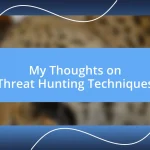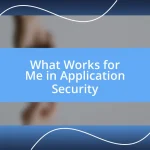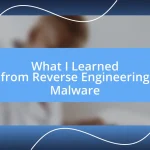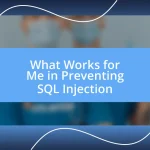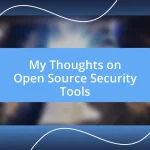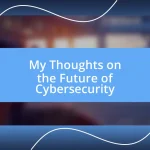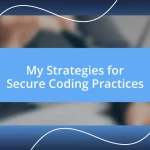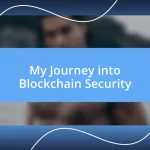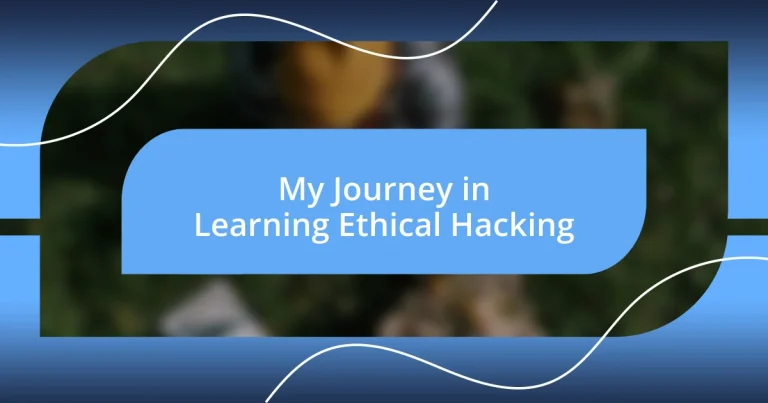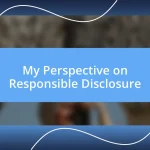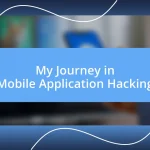Key takeaways:
- Gaining foundational knowledge in networking, programming, and practical tools is essential for success in ethical hacking.
- Choosing diverse and interactive learning resources, such as online courses and hands-on projects, enhances understanding and retention of concepts.
- Building a professional network through mentorship and community engagement fosters growth and opens opportunities for collaboration in the field.
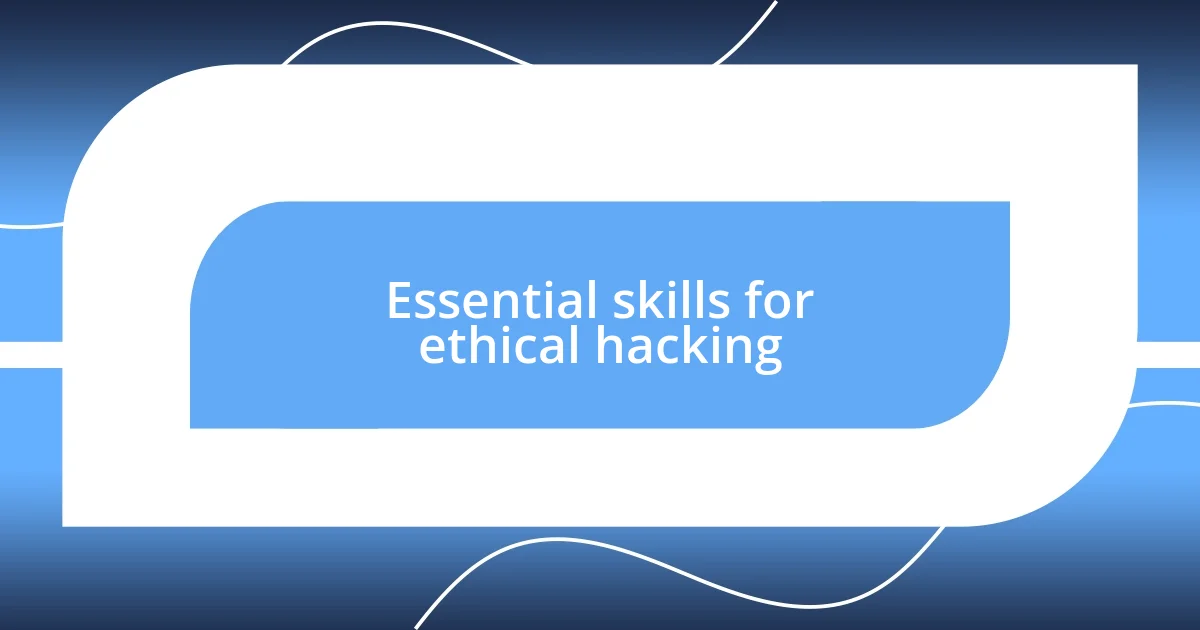
Essential skills for ethical hacking
When diving into ethical hacking, a solid foundation in networking is crucial. I remember feeling overwhelmed when I first encountered concepts like TCP/IP and DNS. But understanding how data travels across networks empowered me, transforming those initial frustrations into confidence.
Proficiency in various programming languages is another essential skill. I’ll never forget the moment I successfully wrote a simple Python script to automate a tedious task—it felt like unlocking a new level in a game. Can you imagine the satisfaction of solving complex problems with a few lines of code?
Moreover, mastering the tools of the trade can’t be overlooked. When I first used Wireshark to analyze network traffic, it was like stepping into the mind of the network itself. Have you ever had that “aha” moment where everything just clicks? It’s these practical experiences that cement your knowledge and sharpen your skills.
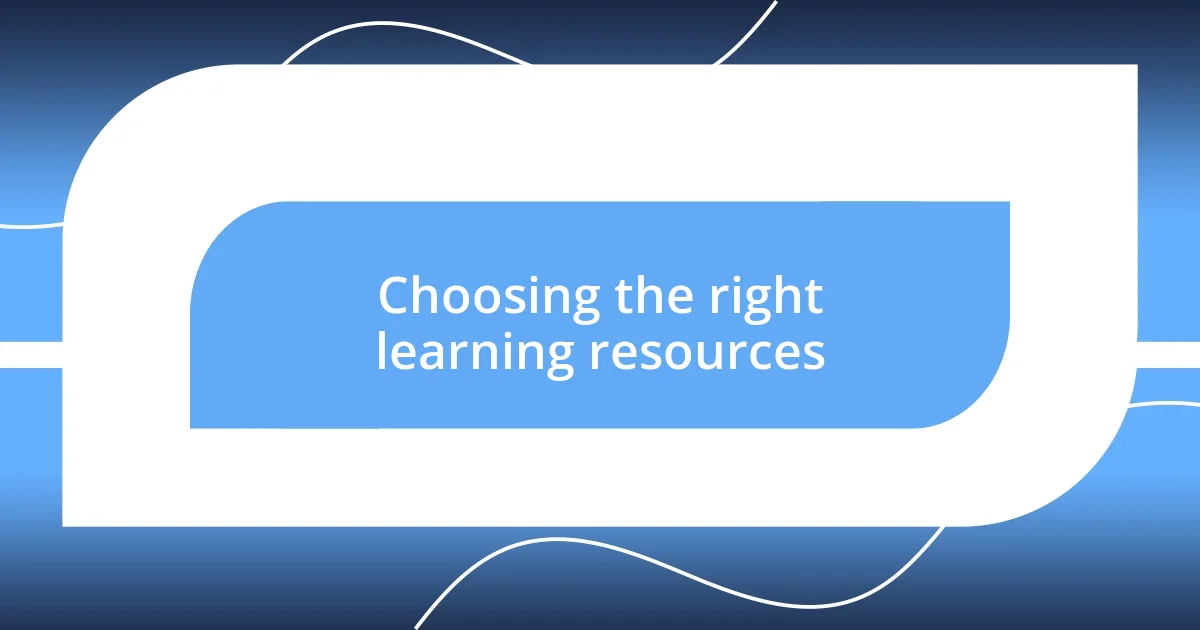
Choosing the right learning resources
Choosing the right learning resources is fundamental to mastering ethical hacking. In my experience, there’s a vast ocean of materials out there, but not every resource fits every learner’s style. I once spent hours going through a textbook that seemed highly regarded, only to realize it was overly technical for my needs at the time. A balance of theory and practical examples is essential, and sometimes, a well-structured online course can make those complex concepts come alive.
I’ve found that interactive platforms can significantly enhance the learning process. For instance, participating in Capture The Flag (CTF) challenges not only bolstered my skills but also allowed me to learn through experience. This hands-on approach turned abstract theories into tangible skills. It’s fascinating to see how engaging with real-world scenarios can accelerate your learning, rather than just passively reading or watching videos.
When considering which resources to invest time in, I always recommend checking reviews and testimonials from other learners. I remember choosing a course based on one glowing review, which turned out to be a game-changer for my understanding of ethical hacking methodologies. Reflecting on it, I believe that personal experiences shared by others can guide you in making better choices. Sometimes, it’s worth taking the time to sift through community discussions to find gold nuggets of wisdom.
| Resource Type | Pros |
|---|---|
| Online Courses | Structured learning, often includes hands-on exercises. |
| Books | In-depth information, can be revisited anytime. |
| Video Tutorials | Visual learning, great for complex concepts. |
| Practice Platforms | Real-world simulation, boosts problem-solving skills. |
| Forums/Communities | Peer support, learning from shared experiences. |
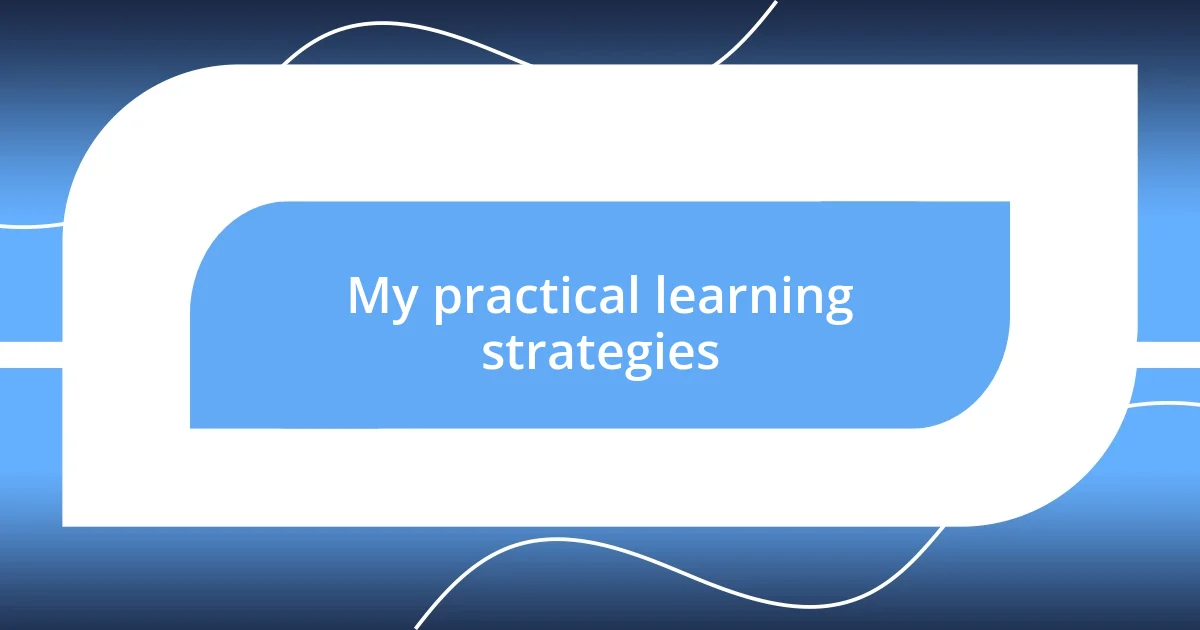
My practical learning strategies
When it comes to my practical learning strategies, I’ve realized that blending structured study with hands-on practice produces the best results. Early on, I set aside dedicated time each week to delve into new concepts rather than overwhelming myself each day. This allowed my brain to digest information better. I vividly recall spending an entire Saturday afternoon running penetration tests in a controlled environment. That mix of theory and practice sparked a real passion in me for exploring vulnerabilities.
- Break down complex topics into manageable sections.
- Allocate specific days for focused study.
- Engage in hands-on projects or labs regularly.
- Participate in online communities for shared learning.
- Reflect on your progress and adjust strategies as needed.
I also discovered the power of self-reflection after each learning session. After a particularly challenging week of mastering SQL injection techniques, I took a moment to journal my thoughts and breakthroughs. This not only reinforced my learning but revealed gaps in my understanding that I could address later. It’s interesting how writing about my learning process often illuminated pathways I hadn’t considered before! This reflective practice has kept my motivation high and made the journey more rewarding.
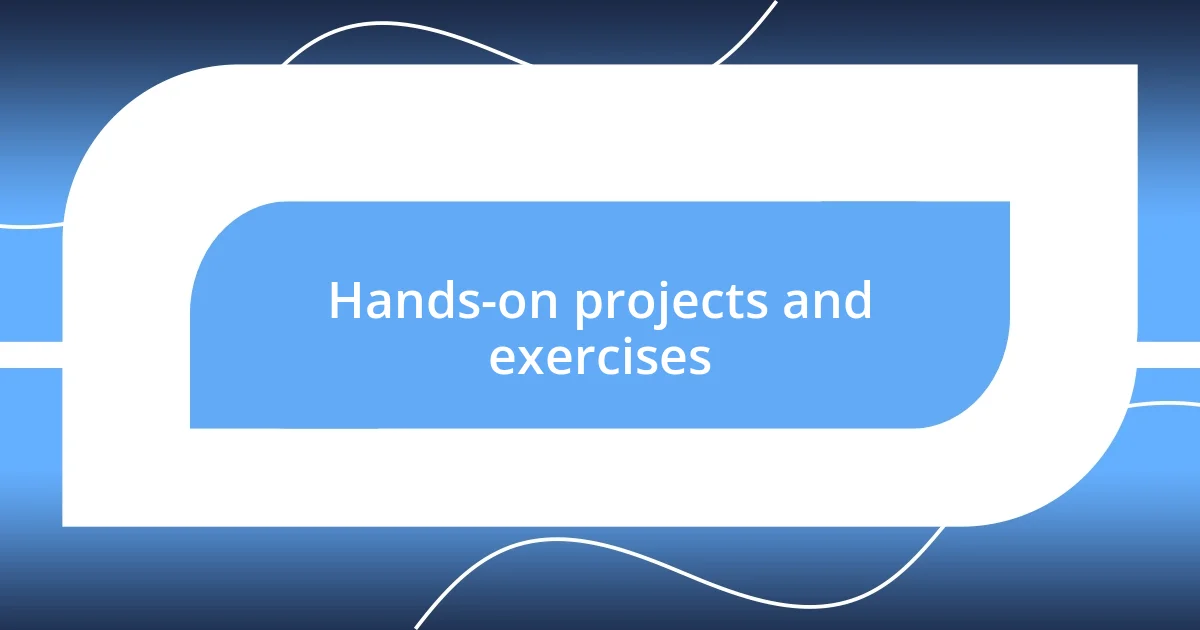
Hands-on projects and exercises
Engaging in hands-on projects has been a pivotal part of my learning journey in ethical hacking. I remember one particular weekend I dedicated to setting up my own virtual lab environment using tools like Kali Linux. As I tested various exploits, the thrill of seeing my actions have real, albeit controlled, consequences was both exhilarating and educational. It wasn’t just about following steps; it was about understanding the why behind each action, which is something theory alone can’t provide.
I’ve learned that documenting my hands-on experiences is just as critical as the practice itself. After completing a project, I often jot down what worked, what didn’t, and the lessons I gleaned in between. This reflection helps me retain information and keeps the emotional highs of those “aha” moments fresher in my mind. Have you ever felt the rush of success when you finally overcome a tricky exploit? It’s a powerful motivator that drives me to tackle even more complex challenges.
What really transformed my approach was participating in collaborative projects with fellow learners. I recall working on a group penetration testing assignment; it was eye-opening to see how others approached the same problems. This exchange of ideas not only boosted my skill level but reinforced the importance of teamwork. The thrill of collective problem-solving, coupled with the friendships forged along the way, made the entire learning experience not just educational, but enjoyable. Isn’t it incredible how collaboration can energize your journey?
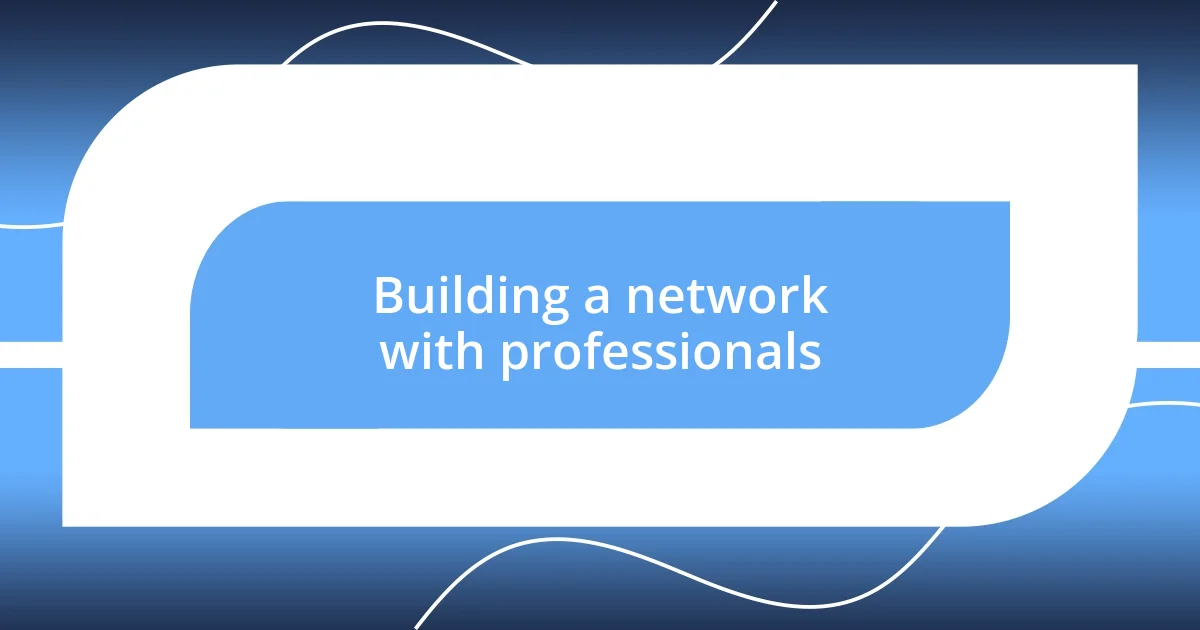
Building a network with professionals
Building a professional network has been one of the most rewarding aspects of my journey in ethical hacking. I remember attending a local cybersecurity meetup and feeling a mix of excitement and anxiety as I mingled with seasoned professionals. That initial conversation with a community leader about my passion for ethical hacking really opened doors; it showed me how valuable these connections could be for gaining insights and learning from others’ experiences. Have you ever felt that urge to connect, only to hesitate? Trust me, stepping out of your comfort zone can lead to unexpected opportunities.
Participating in online forums and cybersecurity challenges has also enriched my networking experience. I recall joining an online Capture The Flag (CTF) competition where I not only sharpened my skills but also connected with like-minded hackers from around the world. Sharing strategies and tips in real-time with others made the learning process interactive and fun, fostering a sense of belonging in a space that can sometimes feel isolating. Isn’t it fascinating how technology can bridge distances, allowing us to learn and grow together?
Lastly, I’ve learned that mentorship plays a crucial role in building a network. I was fortunate enough to find a mentor early on who guided me through various challenges and shared industry insights that textbooks simply couldn’t offer. This relationship transformed my understanding of ethical hacking and instilled a sense of confidence in my abilities. Have you sought someone to mentor you, or maybe even thought about becoming a mentor yourself? It’s amazing how a little guidance can propel you forward and how giving back can enrich your own journey.
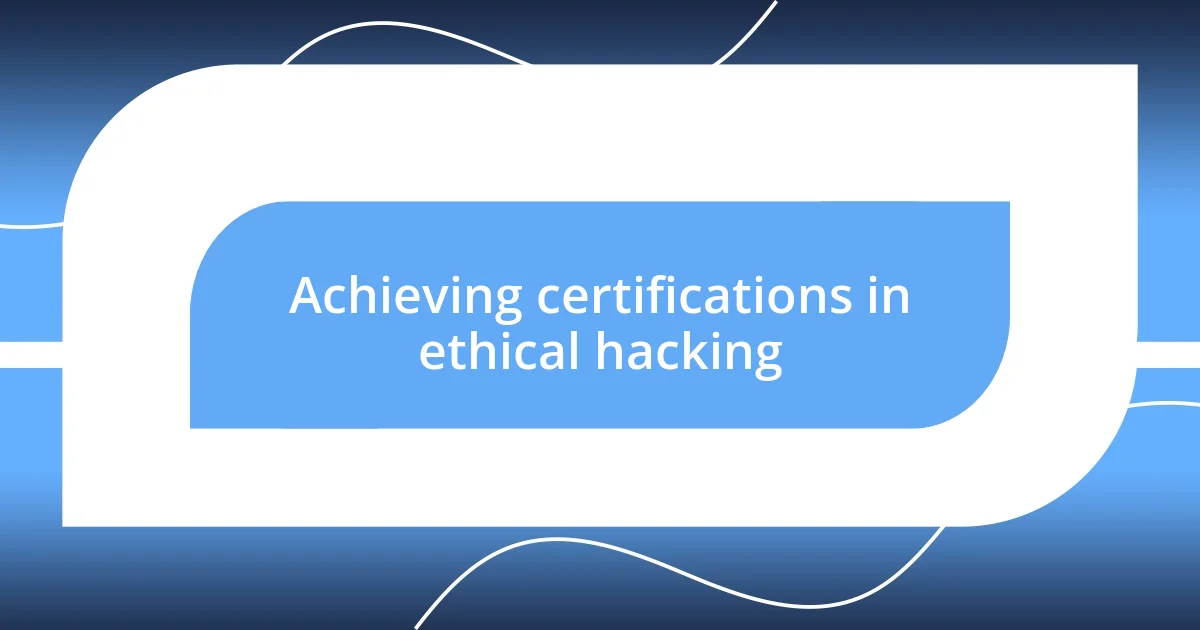
Achieving certifications in ethical hacking
Achieving certifications in ethical hacking has been a major milestone in my journey. I vividly recall the moment I received my Certified Ethical Hacker (CEH) credential. It felt like finally unlocking a door to a world that had once seemed so daunting. The rigorous study sessions were challenging, but preparing for the exam taught me so much about different tools and techniques. Do you remember the satisfaction of passing a difficult test? It’s a feeling I won’t forget anytime soon.
As I worked toward my certifications, I found that hands-on practice paired with theory was essential. I remember integrating my lab experiences with the concepts I learned in my study guides. When I studied for the Offensive Security Certified Professional (OSCP) certification, I spent countless nights grinding through exercises that mirrored real-world scenarios. The adrenaline rush I felt while tackling those challenges only motivated me more. Isn’t it amazing how practical application can enhance understanding?
One interesting insight from my certification journey is the vibrant community that surrounds ethical hacking. After I earned my CompTIA Security+ certification, I joined several online groups filled with accomplished professionals. Sharing study tips and exam strategies became a source of motivation. It’s not just about the credentials; it’s about being part of a collective that’s passionate about cybersecurity. Have you ever felt that spirit of camaraderie in your own learning experiences? It’s that connection that truly enriches the certification process and keeps the flame of curiosity alive.

